Vodlozero National Park, Republic of Karelia, Russia#
11 November 2020
with kind permission of AirPano
Karelia is known as the land of a thousand lakes. But that's a severe understatement: there are at least 60,000 of them in this region. The largest lakes of this area are Lake Ladoga and Lake Onega; along with them, there is a smaller and less famous but equally beautiful Lake Vodlozero. It is located in the southeastern part of the Republic of Karelia and covers 358 km².
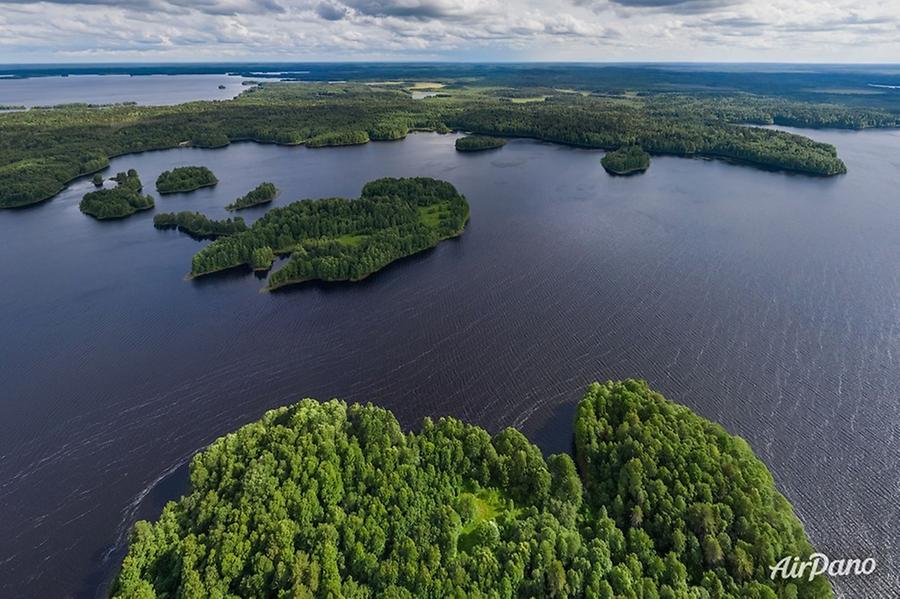
© AirPano
The lake stretches from the south to the north and has glacial origin: it is the reason for this coastline to have a winding shape. While looking at the shore, we can imagine the movement of glaciers that had changed the landscape. Maximum depth of the lake is 18 meters, the average one is 4.2 meters.
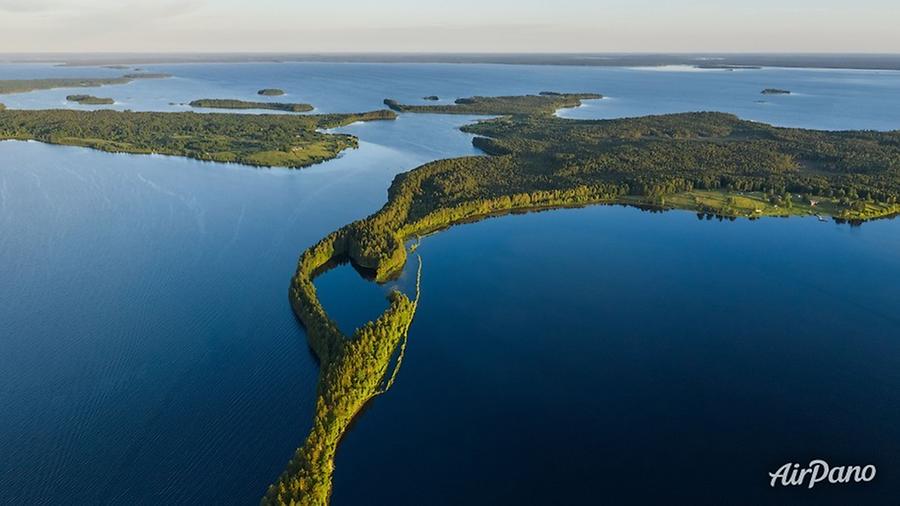
© AirPano
The name of the lake refers to the Vodla River belonging to its basin. The surface of the lake features 196 islands. Far back in the past, there were around 40 settlements located on islands and the coastline of the lake. The folk living here were known as "vodlozers": this ethnic group is believed to consist of people who had come from Novgorod and Moscow in the 14th-15th centuries.
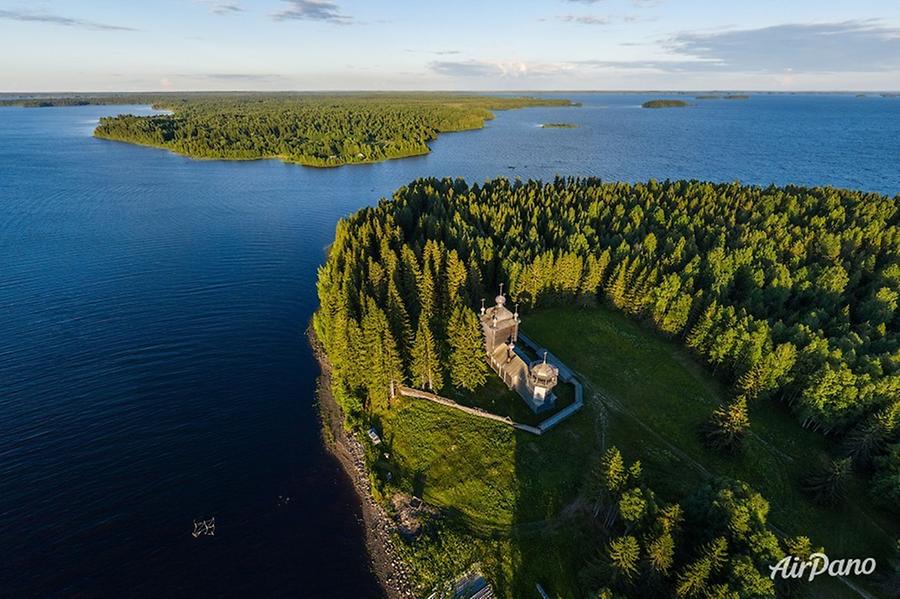
© AirPano
Nowadays, there is only one major settlement in this area: Kuganavolok village. In 1935, the lake was turned into a seasonal reservoir for logging. Then, in the 1990ies, these activities ceased and one year later, Vodlozersky National Park was established here, consequently becoming a UNESCO Biosphere Reserve.
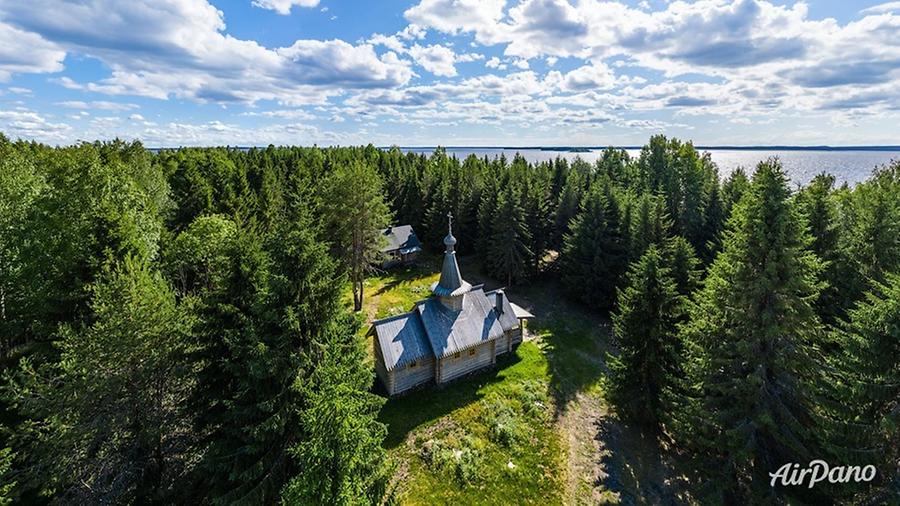
© AirPano
Europe's most extensive areas of indigenous forests have been preserved on the territory of the park and along the coastline of the lake: dark needle spruces, light coniferous forests and giant Siberian larches grow here. These trees enclose the lake creating a peculiar picturesque evergreen fence. And here is a typical Karelian landscape: the purest water surface and rows of silent woods. By the way, the average age of these trees is 240 years and some of the plants live even longer — around five hundred years.
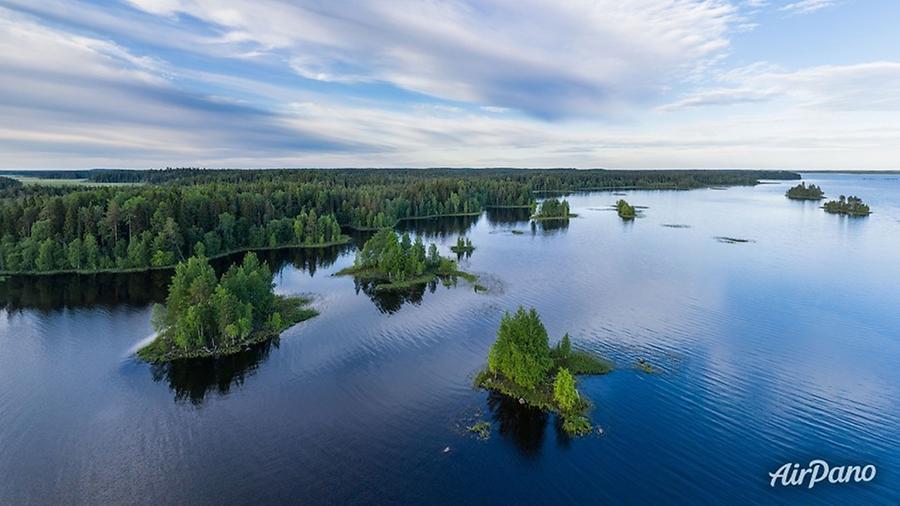
© AirPano
Different species of birds and animals, such as bears, wolverines and deers, live on the territory of the park. Lake Vodlozero is home to more than 20 species of fish: the salmon, vendace, coregonus, burbot, carassius and many others, including the endangered species of the European bullhead (Cottus gobio).
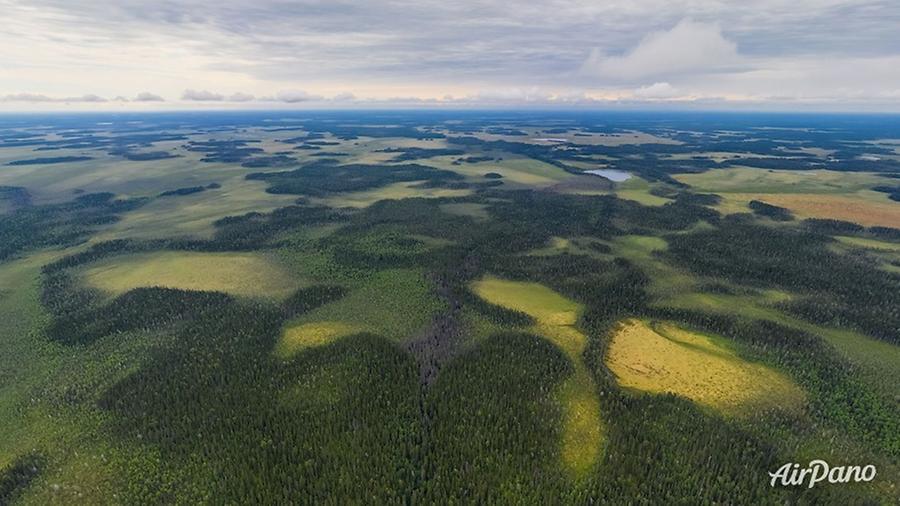
© AirPano
One can reach Lake Vodlozero only through Kuganavolok village, the journey also depends on the seasonal condition of the road and weather. Besides, tourists must have a permit to visit the park. But with the help of the AirPano panoramas, one can take a journey to these picturesque natural locations without any problems!
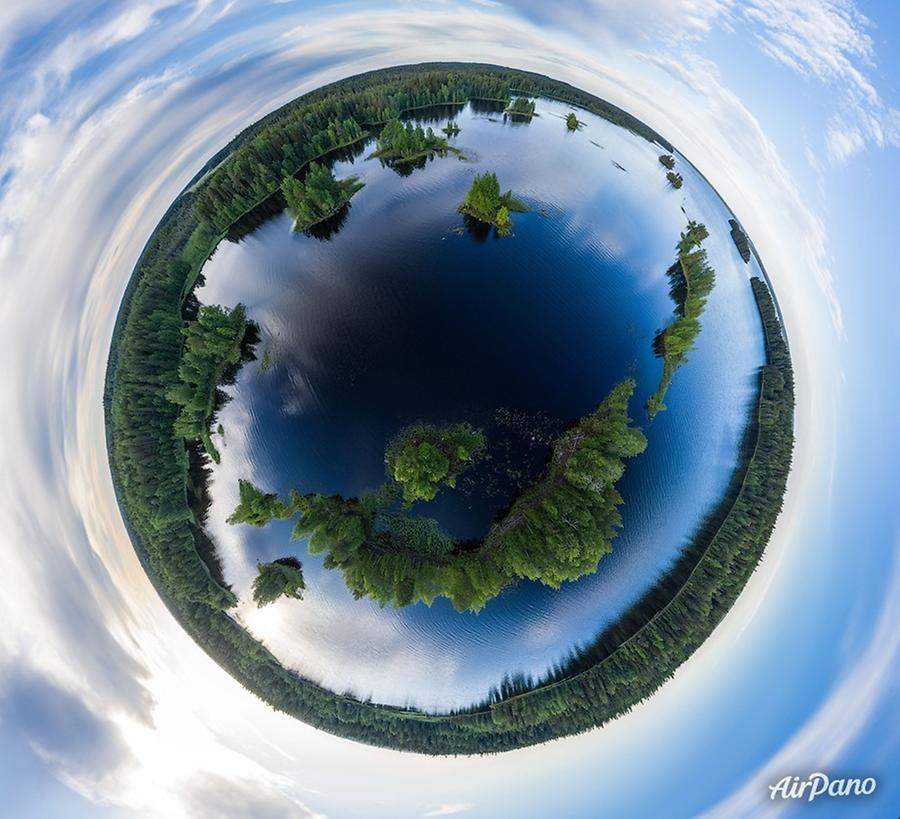
© AirPano
AirPano team would like to express our gratitude to the administration and staff of the Vodlozersky National Park, personally director Alla Yurevna Gudym, deputy director Tatiana Ilmast and Father Oleg for the assistance in the shooting process.
17 panoramas of Vodlozero National Park